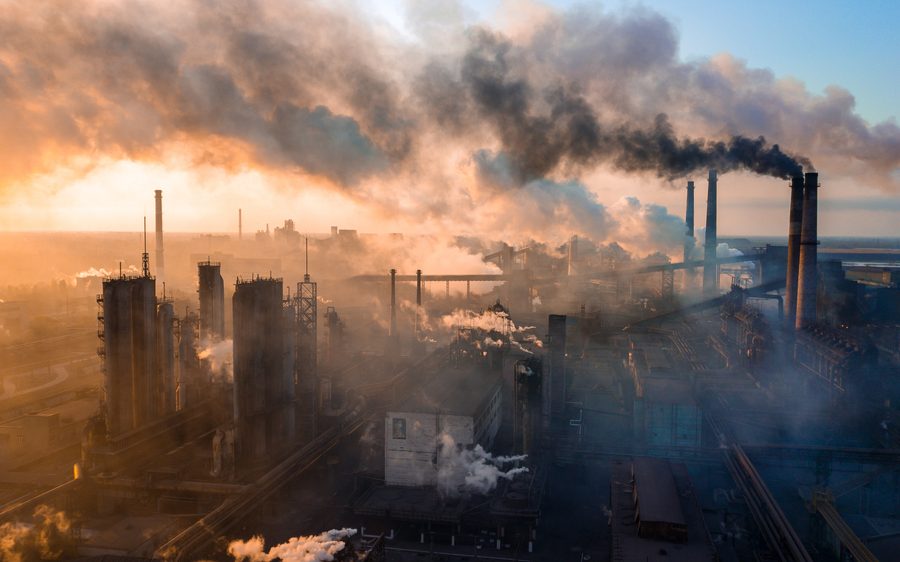
European Chair for Sustainable Development and Climate Transition: Starting a second 3-year mandate
6 February 2024
Conference on the Future of Transatlantic Relations
21 March 2024Founding Statement
The Sciences Po Energy Review is a publication to advance dialogue about energy. Motivated by the pressing global need for energy transitions, the journal primarily employs a social scientific approach without being constrained by any single discipline. We propose a series of edited issues to feature graduate student writing, highlight and develop contributors by placing them in conversation with peers and experts, and strengthen existing debates and research about energy at Sciences Po and beyond. The publication employs varied and thought-provoking formats to achieve a holistic synthesis of developments and issues in the sphere of energy. The Sciences Po Energy Review operates under the auspices of the European Chair for Sustainable Development and Climate Transition.
Issue 1: Global Energy Transitions’ Narratives and Sequencing
2030 marks the first internationally significant deadline for decarbonisation under the paradigm of energy transition. As the decade goes on, momentum is growing to renew global ambitions to keep the 2050 climate objectives in sight. International fora have expanded their scope to affirm that transitions must be just, ambitious and orderly. At COP28 in December 2023, the Parties reached an unprecedented consensus on aligning their soon-to-be-updated National Determined Contributions (NDCs) to increasingly narrow paths of achieving the goals of the Paris Agreement.
However, when it comes to passing from the reassuring concepts of net zero or 1.5 to their actual implementation, a Pandora’s box of conflicting philosophies is unveiled. The UNFCCC foundational principle of nationally determined, bottom-up contributions exemplifies how any truly global transition is heterogeneous in its conception, implementation and consequences. Inevitably, global rhetoric jostles with transition narratives reflecting national developmental priorities, economic realities of comparative advantage, and geopolitics.
Prominent dichotomies emerge in analysing global transitions’ pathways. As top polluters participate in climate and energy dialogues, are we witnessing a real and ambitious paradigm shift, or opportunistic behaviour? Do technology-specific transition frameworks offer a radical new path forward, or are they simply a distraction? Is decarbonisation about transitioning from molecules to electrons, or is there space for both? Even the narrative of ‘energy transition(s)’ cannot be taken at face value if the bigger picture turns out to be simply one of energy addition.
Furthermore, diverging plans raise the pressing question of what constitutes timely effort. The NDCs present a dizzying array of target dates distributed unevenly across states with vastly different economic realities. The specificities of each actor will configure how they traverse, or diverge from the paths to climate neutrality. In other words, discussions on the how of the transitions cannot overlook the when. Understanding the sequencing of any energy transition cannot therefore take decarbonisation as a foregone conclusion.
This issue welcomes contributions that explore the narratives and sequencing of global energy transitions. Submissions could analyse, but are not limited to, the transition strategies of geopolitical and economic actors, the shifting roles of energy carriers, or the international disparity in climate and energy priorities. We encourage submissions to adopt a global and/or transnational perspective.
Issue’s structure
The premier issue of the Sciences Po Energy Review will delve into the contours of global energy transitions’ narratives and sequencing through three formats: debates, expert commentaries/ critical essays, and an annotated bibliography.
The debate section will deep-dive into debates under the theme of the issue. The submission should aim for a length of 750-1,000 words. The debate questions of the first issue are:
- Hydrogen narrative: is there only hype/hope for this technology in more affluent countries, or can hydrogen meaningfully facilitate a global transition? (Are we improving supply chains + security + creating opportunity, or encouraging neocolonialism?)
- Sequencing: should we slow down the energy transition to guarantee political and economic affordability? (What responsibilities + rights do developed vs. developing countries have?)
The expert commentaries/critical essays section will collect submissions from those with professional, practical and/or academic experience relevant to the theme of the issue. An individual may submit up to one critical essay per issue. Submissions are encouraged to be an opinion-style piece to reflect upon/raise awareness of your topic or a longer article that presents arguments in a more scholarly style. Authors are welcome to build on work they have created previously or with newly written arguments. They are also welcome to co-author pieces. The length is encouraged to be around 1,000-2,000 words.
The annotated bibliography section will act as a curated reference of energy literature, offering a comprehensive overview of key works related to each issue’s focus. It will catalogue each entry under its relevant sub-topic. These sub-topics will be introduced with concise summaries, underscoring their significance and contributions to the field. This section aims to be a resource offering insights and guiding further exploration into the complex and evolving landscape of energy studies.
Call for submissions details
- Submissions to the debate section and expert commentaries/critical essays section should follow these detailed guidelines
- All submissions to be sent to: Ernest LEE (jianhaoernest.lee@sciencespo.fr) and Arina KHOTIMSKY (arina.khotimsky@sciencespo.fr)
- Submission deadline: Monday, 8 April 2024
Editorial team
The current editorial team comprises students enrolled in the Sciences Po Master’s Program in International Energy Transitions, an academic program administered by the Paris School of International Affairs (PSIA).
Co-editors: Ernest Lee and Gabriele Romeo;
Editorial Board Members, Debates Section: Arina Khotimsky and Hanna Klar;
Editorial Board Member, Events and Social Media: Hanna Klar;
Editorial Board Member, External Affairs: Valentin Ranke.
Senior advisors
The academic rigour and intellectual integrity of the Sciences Po Energy Review will be enhanced and guaranteed through the appointment of two senior advisors:
- Marc Ringel – Chairholder at the European Chair for Sustainable Development and Climate Transition at Sciences Po
- Giacomo Luciani – Scientific Director, Master in International Energy Transitions, Paris School of International Affairs, Sciences-Po Paris


